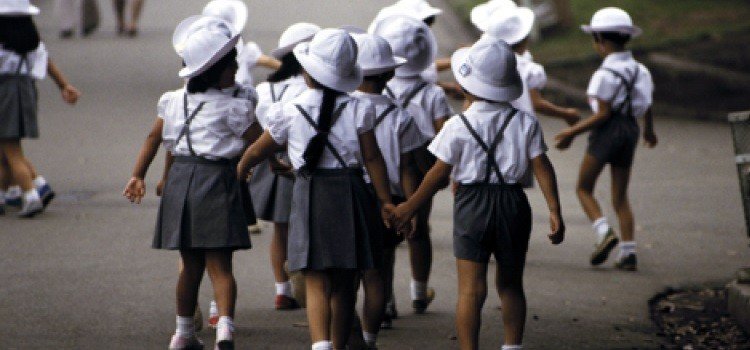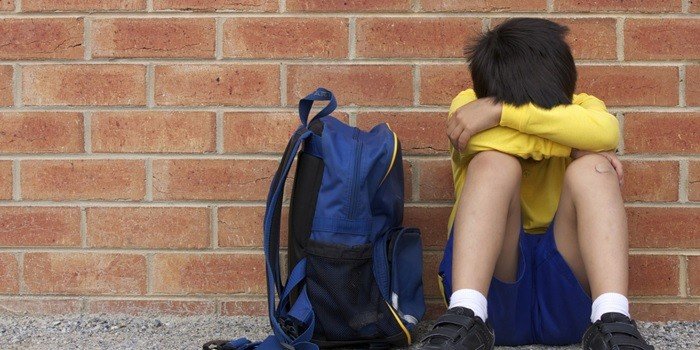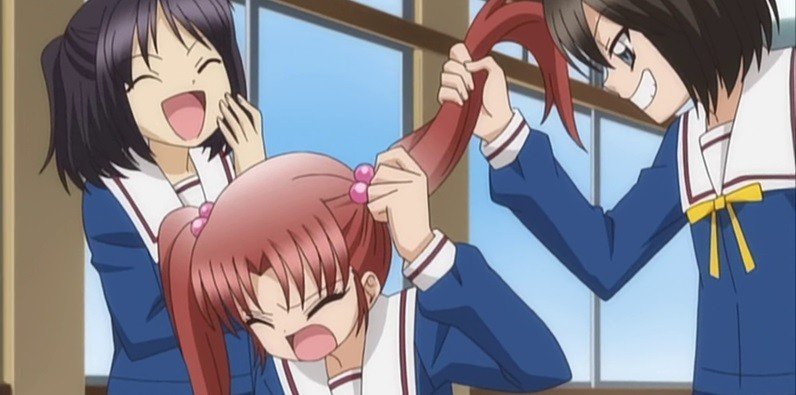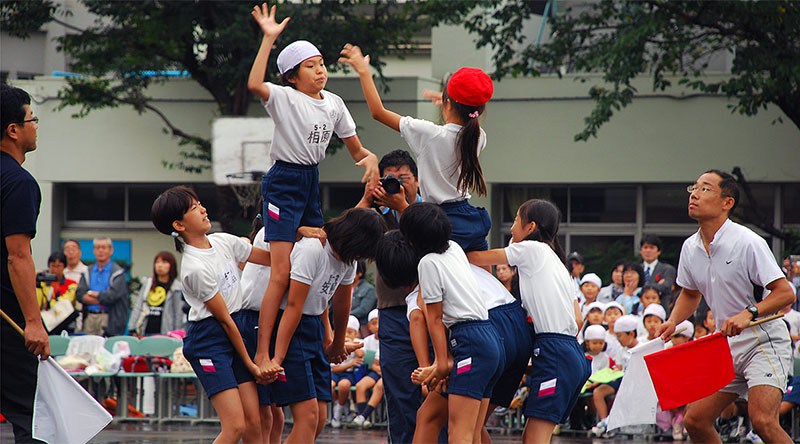Many believe that schools in Japan are as wonderful as in anime. Really Japanese schools work and teach children to make right decisions that don't harm society or the system. While many Western schools are too liberal, which causes many young people to become delinquents, the rigidity of Japanese schools contributes to peace and low crime. In this article, we are going to look at the problems of the Japanese education system.
This rigidity in Japanese schools ends up harming young people and society in many ways. Things like teen suicide, antisocial youth, and the low birth rate are all results of Japan's education system.
The Japanese education system trains young people to be independent from the age of 6, when they go to schools alone. There are extra classes and lots of positive and fun things to train young people's minds during elementary school.
For example, learning is often conducted in a playful way, and activities such as art, custom paper writing and teamwork help students develop creativity, ability to express thoughts and making decisions, and increase social interaction skills.

So far everything is perfect, problems happen especially when young people go to secondary school. The main problem with Japanese education is its central structure. It was conceived in the Meiji Era to train a society of obedient people in order to create a rich and perfect country.
The system is completely centered on taking exams through brutal memorization. As much as teachers give students complete freedom to question, create or innovate, most students end up not having any critical thinking.
Many end up not using their right to choose and express themselves. Much of the students' effort goes into irrelevant or useless subjects. At the same time, there are thousands of intelligent Japanese students, most of whom are unaware of the world.
Índice de Conteúdo
Rigidity in Japanese schools
The first thing that happens when a student enters high school is the process of self-criticism. Students are told to lose self-esteem and ego by imposing strict rules and simple tasks.
Students have to follow several rules that seem to make no sense. Even outside of school, in daily life, students need to follow rules so as not to tarnish the school's name.

Each school has its own rules, some are more liberal, others are stricter. Let's see below some rules that show how some Japanese schools are too strict.
- Does not allow dating;
- You cannot do any volunteer activity without permission from the school;
- You cannot have a part-time job without authorization from the school;
- No travel is allowed without authorization from the school;
- Dress code;
- Cleaning rules;
- Punctuality rules;
- You can see other rules in our article here.
Despite all rigidity and rules, not all students, teachers and schools follow them to the letter. There will always be a blind eye and the school cannot control or know what happens outside of it or behind the scenes.
Even with so many unnecessary rules, social, emotional problems and especially bullying happen, and culturally teachers and students do not try to solve the problem.
Other issues that may affect students
The duration of Japanese school can be a nuisance for many people, especially for people with special needs or social problems. It is common for students to stay at school all day because of school clubs. One of the main problems of Japanese schools is the bully (ijime), we already wrote an article about it, you can read it by clicking here.

Although Japanese schools seem rigid, everyone graduates easily. There is no flunking in Japan, the teachers are not very strict, they even raise students' grades or give easier exams.
It is common to see students sleeping in the classroom. Many current teachers receive little support or training, they are incompetent and cannot manage a classroom, others don't care about students.
Higher education is even less rigorous and the students are all relaxed. This is an example that all the rigidity in secondary and secondary education is useless. The most complicated period of school life is the end of high school, where students prepare to enter college.

Some study like crazy to pass the university entrance exam they want. This time is really rigid and full of pressure that even causes suicide of some young people who have not been successful.
Are schools in Japan really that bad?
Although many foreigners and Japanese people complain about the points covered in this article, we must take into account that there is no perfect school. Both the Japanese education system and the education systems of other countries have their flaws.
Japanese schools work very well for most people, only those who have a grudge or problem with the system feel uncomfortable.
Most students do not face these many extreme rules cited in the article. They freely use their cell phones in class, loosely follow the dress code, and have never been bullied or corporally punished.

I don't want to invalidate the experiences of some, but most Japanese people had a pretty decent childhood in the Japanese education system. Those who do not adapt well to Japan's public schools can resort to a Gakushū juku (private school).
As much as some have had bad experiences in Japanese schools, one should not generalize! Schools around the world suffer from bullying, social classes, cliques, pressures and others.
Before placing your child in a Brazilian school in Japan, think about the incredible benefits that the Japanese education system can provide your child. Don't just think about the negative things, if you're going to take statistics into account, there's no reason to be afraid.
To finish the article, we recommend reading other materials involving Japanese schools below:




